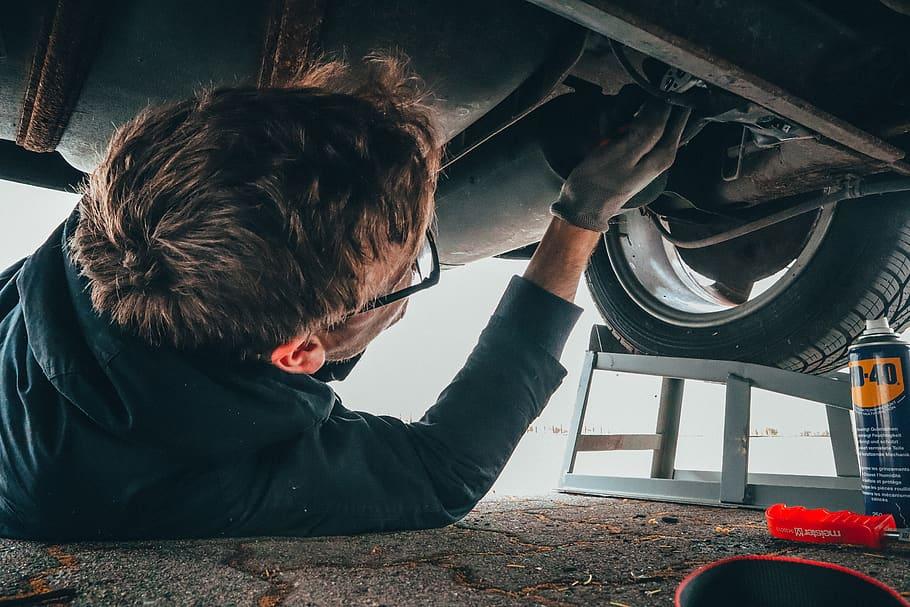
If you’re thinking about buying a used car, you might be wondering if getting a warranty is necessary. It sounds like a good idea, but is it actually worth the extra cost? Well, probably. Used car warranties can protect you from unexpected repairs, but it’s important to understand what’s covered and if the deal you’re looking at fits your needs.
This guide will explain how used car warranties work and help you decide if you should get one.
Find car finance deals with the best rates!
My monthly budget is
What is a used car warranty?
A used car warranty is a type of protection that helps cover repair costs if something goes wrong after you buy a vehicle. At its core, a car warranty is a contractual agreement between you and the warranty provider. Sometimes, this is the seller of a vehicle, and other times, it’s a separate warranty company.
The details vary depending on who provides it, but most warranties set out what parts and repairs are included, how long the cover lasts, and any limits or exclusions. A comprehensive warranty covers more components, and basic policies only cover major engine and gearbox faults.
How long warranties last and when they start
The length of a used car warranty depends on who provides it and the type of cover. A warranty period ranges from just a few months to several years, but it’s important to know when the clock starts ticking. Most begin from the date the car was first registered or when the vehicle is sold by a dealer, though the exact terms vary depending on the warranty.
For example, a car may still have some time left on its original manufacturer warranty if it’s only a few years old. Once that warranty expires, you may be offered extra cover, such as a third-party warranty or one from the dealer.
What are the four types of used car warranty?
There are four common types of used car warranty:
- Dealer warranty – Short-term cover provided by the seller, which lasts three to six months.
- Approved used warranty – Comes with manufacturer-approved used cars and usually gives longer, more reliable protection.
- Manufacturer warranty – The original manufacturer warranty lasts three to seven years from the first registration date.
- Third-party warranty – Sold by an independent warranty company and can be taken out once the original cover ends.
What does a used car warranty cover?
The exact warranty coverage depends on the type of policy and provider, but most plans focus on key mechanical and electrical parts. A typical warranty includes the engine, gearbox, suspension, steering, electrics, and braking system. These are expensive areas to fix, so knowing they’re covered by the warranty will save you money and stress.
Some warranties also cover the cost of extras like vehicle recovery or a hire car while repairs are done. Higher-level policies may even cover things such as air conditioning or ECUs.
Bear in mind that warranties rarely cover wear and tear. Parts like brake pads or tyres are expected to wear out and won’t be included. Consumables, such as oil, filters, and fluids, are also excluded.
Pros and cons of used car warranties
Like any extra cover, a used car warranty comes with positives and negatives:
Pros
 Covers routine faults and the cost of repairs
Covers routine faults and the cost of repairs
 Reduces the cost of fixing unexpected problems
Reduces the cost of fixing unexpected problems
 Offers peace of mind
Offers peace of mind
Cons
 The cost of the warranty may be high for the value of the car
The cost of the warranty may be high for the value of the car
 Doesn’t cover wear and tear
Doesn’t cover wear and tear
 Some claims may be refused by the warranty company
Some claims may be refused by the warranty company
When is a used car warranty worth it?
When you buy a used car, the manufacturer’s warranty might be running out or already expired. At Carplus, we help you protect your car and your wallet for longer. Our extended warranties cover the important parts, so you don’t have to worry about unexpected repairs.
Now, here are some situations when getting an extended warranty is worth it:
You’re buying an older or higher-mileage car
Older vehicles or cars with high mileage tend to need more repairs. If you’re buying a used car in this category, a warranty can cover costly components like the engine or gearbox.
The car has a history of known issues
Some models are prone to certain faults. If the car develops problems that are common for its make or age, a warranty can be worth the money.
You’re not comfortable with surprise repair bills
Even small repairs can add up quickly. If you prefer predictable costs, it’s worth investing in a warranty to cover unexpected mechanical or electrical failures.
You’re buying from a dealer offering a warranty deal
A vehicle feels like a safer purchase if you’re given the warranty upfront, especially for newer used cars that cost more. A warranty would add real value if it’s included as part of the sale or offered at a discount on coverage.
You’re buying an approved used car
When you purchase a used car from an independent dealer, an extended warranty can give coverage similar to a manufacturer’s plan. You’ll have protection even if the vehicle is not brand-new or fully certified.
You don’t have a trusted mechanic
Used car warranties usually require approved repairers, which can be helpful if you don’t have a trusted mechanic. Any work should be carried out correctly to reduce the risk of costly mistakes.
You prefer paying monthly for peace of mind
A warranty may be offered as an extended service with monthly payments. This lets you spread the cost and still keep your car protected against mechanical breakdowns and unexpected repairs.
You plan to keep the car for a few years
A three-year warranty, for example, is ideal if you intend to keep the vehicle long-term. Over time, this makes car warranties worth the investment because it helps pay for repairs after the manufacturer’s coverage ends.
When is a used car warranty not worth it?
Buying a used car warranty isn’t always the best choice. Regardless of the price of the car, the cost of the warranty may be close to or even exceed what you might pay for repairs.
Similarly, if you’re making a new car purchase, the vehicle will usually come with a manufacturer’s warranty, so adding extra coverage may be unnecessary. The money could be better reserved for servicing, insurance, or running costs.
How to choose the best used car warranty
Start by checking what the policy covers and what it excludes. Get a used car warranty that matches your needs and the age or mileage of the car. Consider whether you want a shorter, simpler type of warranty or a more extensive, longer-term option.
For example, the Flexi Gold warranty lets you choose one-year or three-year comprehensive coverage. It covers major components like the engine, gearbox, clutch, suspension, steering, brakes, and electrics.
The Platinum warranty provides more extensive protection and covers virtually all internal components, including turbo units, ECUs, air conditioning, and drive shafts. It also offers extras like vehicle hire and recovery.
Should you buy a used car warranty?
Many drivers think about whether they should buy a warranty only after they’ve chosen their vehicle. For a newer used car, the original manufacturer’s warranty may still be active, which means you might already have some protection.
Once that coverage runs out, a used car warranty can step in to handle unexpected repair costs. It can be especially useful if the car has higher mileage or parts that are known to be expensive to fix.
How much is a used car warranty?
The warranty cost for a used vehicle depends on its age, mileage, and what the policy covers.
In most cases, the cost ranges from around £250 to £500 for a basic plan. More comprehensive options cost between £500 and £1,000 or more.
Tips for getting the most from your warranty
For used car buyers, a warranty offers valuable protection but only if used correctly. Here are some tips to get the most from a warranty for your car:
- Read the policy carefully – Know exactly what is covered and what is excluded.
- Keep up with servicing – Many warranties require that you follow the manufacturer’s service schedule.
- Store all paperwork safely – Keep receipts and service records handy in case you need to make a warranty claim.
- Act quickly on issues – Report faults as soon as they appear to avoid disputes over coverage.
- Use approved repairers – Some warranties require you to use specific garages for repairs.
- Check for additional benefits – Extras like vehicle hire, recovery, or European cover add value if you need them.
Final thoughts: Is it worth paying for a used car warranty?
Overall, a used car warranty can be a smart investment, especially if your car is older or sold without any coverage. It helps protect you from unexpected repair bills that add up quickly. Aside from situations where you definitely don’t need it (like buying a brand-new car still fully covered by the manufacturer), extra confidence and financial protection are worth it for many people.
Table of Contents
- You’re Buying an Older or Higher-Mileage Car
- The Car Has a History of Known Issues
- You’re Not Comfortable with Surprise Repair Bills
- You’re Buying from a Dealer Offering a Warranty Agreement
- You’re Buying an Approved Used Car
- You Don’t Have a Trusted Mechanic
- You Prefer Paying Monthly for Peace of Mind
- You Plan to Keep the Car for a Few Years








